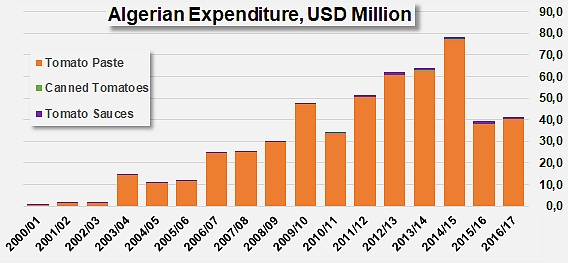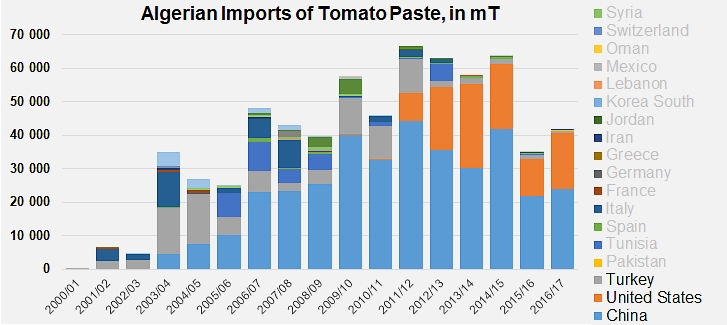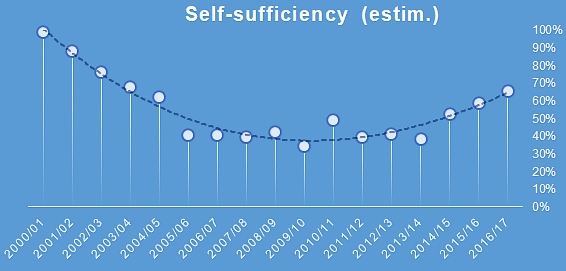At the end of December 2017, the Algerian Ministry of trade published a list of 851 products that are now banned for import. The goal of the authorities is to reduce the country's expenditure on foreign purchases and promote the development of equivalent local products.
During the signing of the public/private partnership charter that is part of these new measures controlling foreign trade, Prime Minister Ahmed Ouyahia added that this list would quickly be extended to include about 1 000 products as from January 2018. In addition to a number of household products and construction materials, the ban includes dried fruit, prepared meats, pasta and grain-based products, canned fruit and vegetables, notably "prepared or preserved tomatoes", as well as various other food items that are commonly manufactured in Algeria.
The Algerian government is also considering extending the list of product categories upon which a 30% national consumption tax is levied (TIC = Taxe Intérieure de Consommation) and increasing customs tariffs up to 60% on about 30 other product categories.
According to the Minister of trade, "the implementation of these measures is mainly aimed at pursuing the recovery of the trade balance, which was recorded at a passive USD 11.06 billion for the first semester 2017, compared to a passive USD 14.61 billion for the same semester 2016."
According to official data, approximately 95% of the revenue from foreign trade comes from the sale of oil and gas. The drop in the price of these products on worldwide markets, together with the decision taken by OPEC countries to reduce their output, has led to a considerable decrease in the levels of currency coming into the country and aggravated the deficit of the Algerian trade balance. This is why the Algerian government wants to encourage national production, and has simultaneously decided to sharply limit import levels.

With slightly less than USD 41.5 million in 2016/2017 and USD 39.5 million in 2015/2016, tomato product imports only account for a minute proportion of the Algerian trade balance deficit. The notable increase in the activities of local processing operators has certainly contributed over the past two years to improving the situation of high dependency that cost Algeria up to USD 80 million in 2014/2015.
The quantities involved, at least for the tomato paste category, nonetheless remain high (41 650 tonnes over the past marketing year), not just for the countries that supply Algeria (China, the USA and, to a lesser extent, Turkey), but also with regard to the country's national demand itself. Recently, spectacular shifts in the levels of imports give reason to believe that the reality of Algerian requirements is likely to be found somewhere around the extremely high volumes recorded in recent years, at approximately 840 000 tonnes per year (farm weight equivalent). This pattern includes a number of approximate results due to trade with several neighboring countries, but the Algerian processing industry has been able to re-appropriate a decisive proportion of its domestic market in recent years, taking its capacity for meeting its own apparent requirements from about 40% for the period 2011-2014 to over 60% for 2014-2017. These new dynamics should continue into 2018, firstly because of the regular progression of volumes processed in Algeria in recent years (from 260 000 mT in 2013 to 600 000 mT in 2017) and secondly because of the protectionist measures instituted by the government, which are by definition to the advantage of the country's processing companies.

































